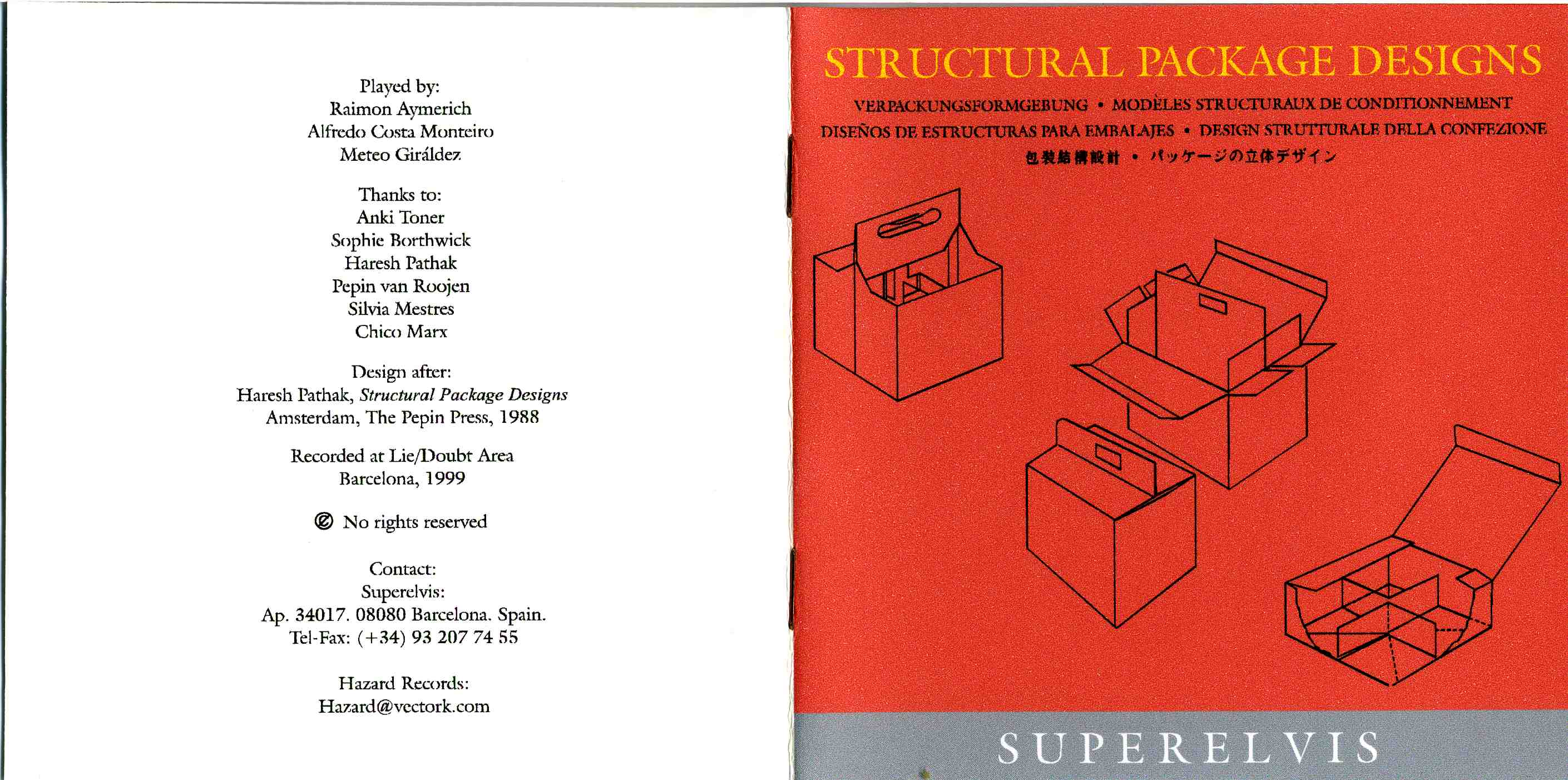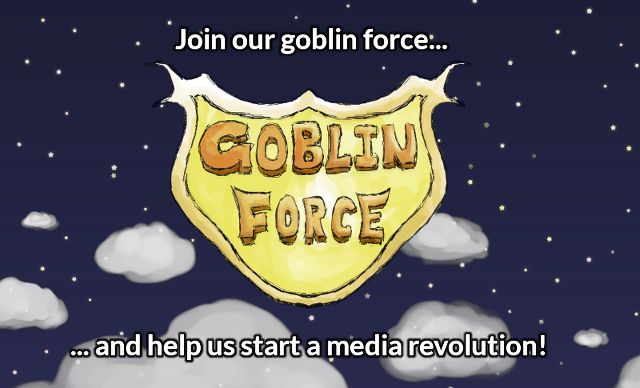April 26 is the day marked each year since 2000 by the World Intellectual Property Organization (WIPO) as “World Intellectual Property Day”, in which WIPO tries to associate its worldwide pushes for more enclosure with creativity.
Celebrating creativity is a good thing, but when you’re a hammer, everything looks like a nail. For the World Intellectual Property Organization, it may seem like creativity and “intellectual property” are inextricably linked. That’s not the case. In the spirit of adding to the conversation, let’s honor all the creativity and industry that is happening without a dependence on a system intellectual property.
There’s an important reason to encourage and promote creativity outside the bounds of increasingly restrictive laws: to the extent such creativity succeeds, it helps us re-imagine the range of desirable policy and reduces the resources available to enclosure industries to lobby for protectionism — in sum shifting what is politically possible. It’s incumbent on all of us who want to encourage creativity to continue to explore and utilize structures that reward creators without also restricting speech.
Comedy, Fashion, Cooking, Magic, and More
In the areas in which intellectual freedom is not typically infringed, there is tremendous innovation and consistent creativity outside of the intellectual property system. Chefs create new dishes, designers imagine new styles, comedians write new jokes, all without a legal enforcement mechanism to restrict others from learning and building on them.
There may be informal systems that discourage copying—the comedy community, to take one example, will call out people who are deemed to be ripping off material—but for the most part these work without expensive litigation, threats of ruinous fines, and the creation of systems of surveillance and censorship.
Contributing to a Creative Commons
The free software movement pioneered the practice of creating digital media that can legally and freely be shared and expanded, building a commons. The digital commons idea is being pushed in more areas than ever before, including culture, education, government, hardware design, and research. There are some projects we’re all familiar with — Wikipedia is perhaps the most prominent, creating an expansive and continuously updated encyclopedia that is freely accessible under permissive terms to the entire world.
Focusing on this year’s World IP Day theme of movies, there have been some impressive contributions the commons over the years. Nina Paley’s feature animation Sita Sings The Blues, which she released into the public domain, has spread widely, inspired more work, and earned her money. The short films from the Blender Foundation have demonstrated cutting-edge computer graphics made with free software and, though they’ve sometimes been on the receiving end of bogus copyright takedowns, have been watched many millions of times.
Kickstarting and Threshold Pledges
Finally, crowdfunding platforms like Kickstarter and Indie-Go-Go have made a major splash in the last few years as another fundraising model that can complement, or even replace, copyright exclusivity. These platforms build on theoretical framework laid out by scholars like John Kelsey and Bruce Schneier in the influential “Street Performer Protocol” paper, which set out to devise an alternative funding system for public domain works. But most crowdfunded works are not in the commons, indicating an need for better coordination of street patrons.
Looking at movies in particular: Kickstarter alone has enabled hundreds of millions of dollars of pledges, hundreds of theatrical releases, and seven Oscar-nominated films (including Inocente, winner of the Best Documentary Short category). Blender Foundation is currently crowdfunding its first feature length film, Gooseberry.
***
The conceit of copyright and other “intellectual property” systems is that they can be calibrated to promote the progress of science and the useful arts. But the reality of these systems is corruption and rent seeking, not calibration. The cost is not just less creativity and innovation, but less freedom and equality.
It’s clear from real world examples that other systems can achieve the goal of promoting creativity, progress, and innovation. We must continue to push for both practice and policy that favors these systems, ultimately rendering “intellectual property” a baffling anachronism. In a good future, a policy-oriented celebration of creativity and innovaion would be called World Intellectual Freedom Day.
[-<p>Today, April 26,-]{+<p>April 26+} is the day marked each year since 2000 [-as "Intellectual Property Day"-] by the <a href="https://www.eff.org/issues/wipo">World Intellectual Property Organization [-(WIPO)</a>. There are many areas where EFF has not historically agreed with WIPO,-] {+(WIPO)</a> as "World Intellectual Property Day", in+} which [-has traditionally pushed-] {+WIPO tries to associate its <a href="https://www.eff.org/deeplinks/2013/03/ustr-secret-copyright-agreements-worldwide">worldwide pushes+} for more [-restrictive agreements and served as a venue for <a href="https://www.eff.org/deeplinks/2013/03/ustr-secret-copyright-agreements-worldwide">domestic policy laundering</a>, but we agree that celebrating-] {+enclosure</a> with creativity.</p>+} {+<p>Celebrating+} creativity is a good [-thing.</p>-] [-<p>As the saying goes, though:-] {+thing, but+} when you're a hammer, everything looks like a nail. For the World Intellectual Property Organization, it may seem like creativity and <a href="https://www.eff.org/issues/intellectual-property/the-term">"intellectual property"</a> are inextricably linked. That's not the case. In the spirit of adding to the conversation, [-we'd like to-] {+let's+} honor all the creativity and industry that is happening <i>without</i> a dependence on a system intellectual property.</p> <p>There's an important reason to encourage {+and promote+} creativity outside the bounds of increasingly restrictive [-laws, too. As Ninth Circuit Chief Justice Alex Kozinski eloquently explained in <a href="http://notabug.com/kozinski/whitedissent">a powerful dissent</a> some 20 years ago, pushing only for more IP restrictions tips a delicate balance against creativity:</p>-] [-<blockquote><p>Overprotecting intellectual property is as harmful as underprotecting it. Creativity is impossible without a rich public domain. Nothing today, likely nothing since we tamed fire, is genuinely new: Culture, like science and technology, grows by accretion, each new creator building on-] {+laws: to+} the [-works-] {+extent such creativity succeeds, it helps us re-imagine the range+} of [-those who came before. Overprotection stifles the very creative forces it's supposed-] {+desirable policy <i>and</i> reduces the resources available+} to [-nurture.</p></blockquote>-] [-<p>It's-] {+enclosure industries to lobby for protectionism -- in sum shifting what is politically possible. It's+} incumbent on all of us who want to encourage creativity to continue to explore {+and utilize+} structures that reward creators without also restricting speech.</p> <h3>Comedy, Fashion, Cooking, Magic, and More</h3> <p>In the areas [-known as copyright's "negative spaces,"-] {+in which intellectual freedom is not typically infringed,+} there is tremendous innovation and consistent creativity outside of the intellectual property system. Chefs create new dishes, designers imagine new styles, comedians write new jokes, all without a legal enforcement mechanism to restrict others from learning and building on them.</p> <p>There may be informal systems that discourage copying—the comedy community, to take one example, <a href="http://www.slate.com/articles/arts/culturebox/features/2014/the_humor_code/joke_theft_can_a_comedian_sue_if_someone_steals_his_material.html">will call out people</a> who are deemed to be ripping off material—but for the most part these work without expensive litigation, threats of ruinous fines, and the creation of systems [-that can be abused to silence lawful non-infringing speech.</p>-] {+of surveillance and censorship.</p>+} <h3>Contributing to a Creative Commons</h3> <p>The free software movement [-may have popularized-] {+pioneered+} the [-idea-] {+practice+} of creating digital media that can legally and freely be shared and expanded, [-but the free culture movement has pushed the-] {+building a commons. The digital commons+} idea [-further-] {+is being pushed in more areas+} than ever [-before.-] {+before, including culture, education, government, hardware design, and research.+} There are some projects we're all familiar [-with—Wikipedia-] {+with -- Wikipedia+} is perhaps the most prominent, creating an expansive and continuously updated encyclopedia that is freely accessible under permissive terms to the entire world.</p> <p>Focusing on this year's World IP Day theme of movies, there have been some impressive contributions the commons over the years. Nina Paley's feature animation <i><a href="http://www.sitasingstheblues.com/">Sita Sings The Blues</a></i>, which she released into the public domain, has spread widely, inspired more work, and earned her money. The <a href="http://www.techdirt.com/articles/20101002/20174711259/open-source-animated-movie-shows-what-can-be-done-today.shtml">short films from the Blender Foundation</a> have demonstrated cutting-edge computer graphics made with free software and, though they've sometimes been on <a href="http://www.techdirt.com/articles/20140406/07212626819/sony-youtube-take-down-sintel-blenders-open-source-creative-commons-crowdfunded-masterpiece.shtml">the receiving end of bogus copyright takedowns</a>, have been watched many millions of times.</p> <h3>Kickstarting and Threshold Pledges</h3> <p>Finally, crowdfunding platforms like Kickstarter and Indie-Go-Go have made a major splash in the last few years as another fundraising model that can complement, or even replace, [-traditional-] copyright exclusivity. These platforms build on theoretical framework laid out by scholars like John Kelsey and [-EFF board member-] Bruce Schneier in <a href="https://www.schneier.com/paper-street-performer.html">the influential "Street Performer Protocol" paper</a>, which set out to devise an alternative funding system for public [-works.</p>-] {+domain works. But most crowdfunded works are not in the commons, indicating an need for better <a href="https://gondwanaland.com/mlog/2013/08/10/street-patrons-missing-coordination-protocol/">coordination of street patrons</a>.</p>+} <p>Looking at movies in particular: Kickstarter alone has <a href="https://www.kickstarter.com/blog/a-big-day-for-film">enabled hundreds of millions of dollars of pledges</a>, hundreds of theatrical releases, and seven Oscar-nominated films (including <i>Inocente</i>, winner of the Best Documentary Short category). [-Along with other-] {+Blender Foundation is currently+} crowdfunding [-sites, it has allowed the development of niche projects that might never have been possible under the traditional copyright system. </p>-] {+its first feature length film, <em><a href="http://gooseberry.blender.org/">Gooseberry</a></em>.</p>+} <h3>***</h3> [-<p>As the Constitution tells us,-] {+<p>The conceit of+} copyright and other "intellectual property" systems [-can, when-] {+is that they can be+} calibrated [-correctly,-] {+to+} promote the progress of science and the useful arts. [-We continue to work pushing for a balanced law that would better achieve that end.</p>-] [-<p>But it's also-] {+But the reality of these systems is corruption and rent seeking, not calibration. The cost is not just less creativity and innovation, but less freedom and <a href="https://gondwanaland.com/mlog/2014/01/30/tech-wealth-ip/">equality</a>.</p>+} {+<p>It's+} clear from [-these-] real world examples that other systems can achieve [-that-] {+the+} goal [-as well. Promoting-] {+of promoting+} creativity, progress, and [-innovation is an incredibly valuable mission—it's good to know that it doesn't have-] {+innovation. We must continue+} to [-come through systems-] {+push for both practice and <a href="https://gondwanaland.com/mlog/2014/02/09/freedoms-commons/#regulators">policy+} that [-can-] {+favors these systems</a>, ultimately rendering "intellectual property" a baffling anachronism. In a good future, a policy-oriented celebration of creativity and innovaion would+} be [-abused to stifle valuable speech.</p>-] {+called World Intellectual Freedom Day.</p>+}



